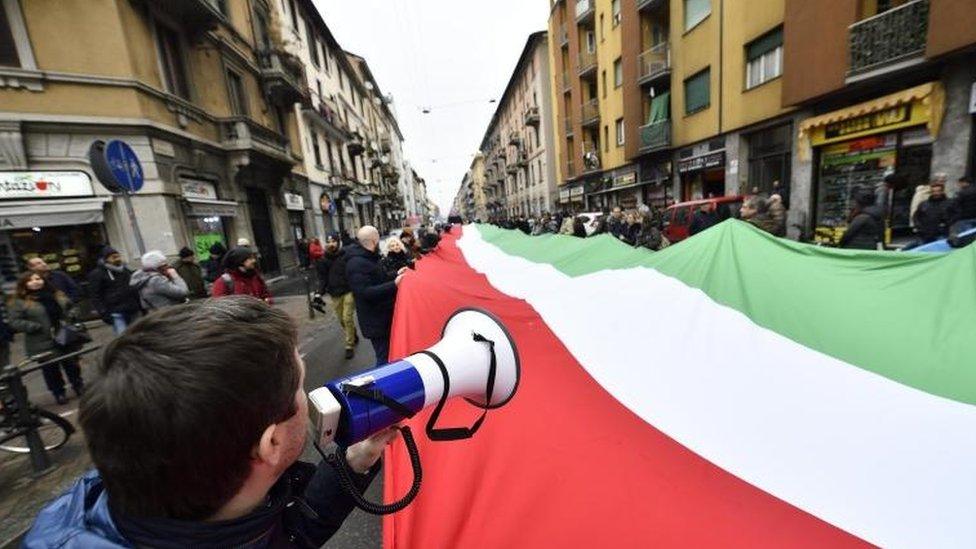Italy populist government pact: Candidate for prime minister named
- Published
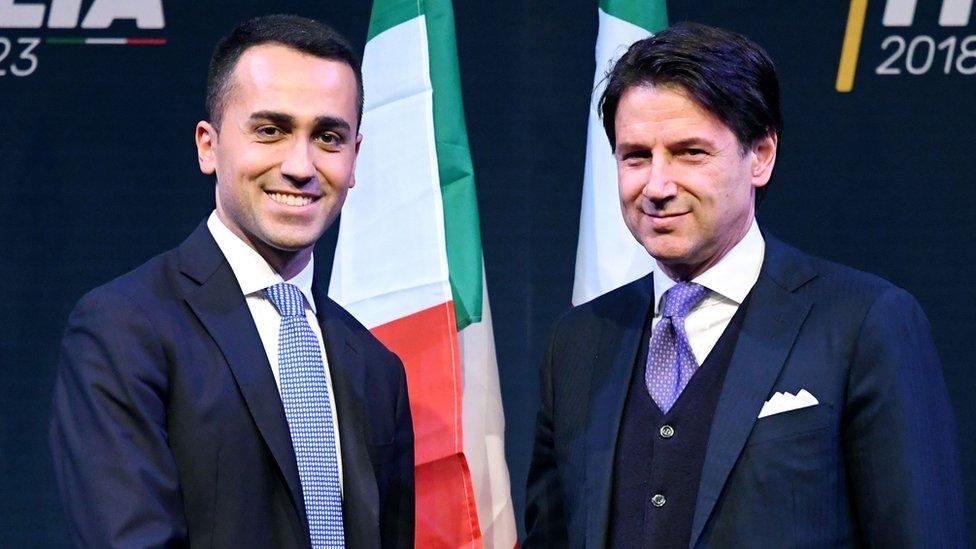
Lawyer Giuseppe Conte (at right, with Luigi Di Maio) is the preferred choice of the populists for PM
Law professor Giuseppe Conte has been named as the choice of the Five Star Movement and League to lead the coalition government.
The leaders of the two parties have been holding talks with President Sergio Mattarella over the approval of their coalition government.
The Five Star's Luigi di Maio has said that Mr Mattarella had been informed that Mr Conte was the agreed candidate.
The two populist parties issued their joint coalition plans last week.
They both reject EU austerity and want to renegotiate Italy's debt, and their spending proposals put Italy on a collision course with the EU.
The coalition pledges, agreed after days of talks between Mr Di Maio and the League's Matteo Salvini, include new "flat tax" rates and a guaranteed basic income for the poor.
Their expensive economic plans could prompt a clash with the EU if they defy the previous government's agreements to reduce Italy's budget deficit.
Over the weekend, Mr Salvini rejected a call by French Economy Minister Bruno Le Maire for Italy to respect its EU budget commitments.
"We will do the opposite of what preceding governments have done. Am I wrong?, external" he tweeted.
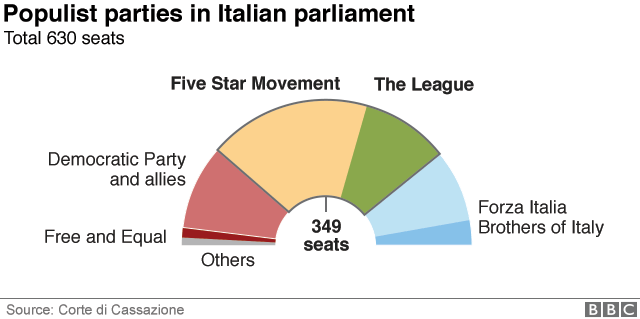
On Monday, European Central Bank council member Ewald Nowotny said the proposed policy changes were creating "nervousness", adding: "I hope that the practice will be a much wiser approach than what is here today from the newspapers."
Both parties have called for a renegotiation of EU fiscal rules and Mr Salvini has in the past condemned the introduction of the euro as an error.
Alarm as Eurosceptics close in on power
By Katya Adler, BBC News Europe editor
Brussels is watching Italy with horror: appalled by the very real prospect of having a Moscow-sympathising, passionately Eurosceptic government in the heart of the EU, hell-bent on flouting the bloc's budgetary, eurozone and migration regulations.
The League and the Five Star Movement have distanced themselves from previous promises to hold a referendum on pulling Italy out of the euro, but the threat to do just that would remain as long as they governed Italy.
Of course we're not there yet. The Italian president and parliament still need to give this government the green light. But the choice of a little-known, moderate academic as prime minister was clever, making this controversial political union - strongly supported by the Italian public - far harder for the establishment to reject.
Who is Giuseppe Conte?
Mr Conte, 53, is a professor who teaches private law in Florence and Rome. He is not an MP and is a complete unknown in politics.
He is seen as a compromise candidate who will come across as palatable to Italy at large, and hard for the president to turn down.
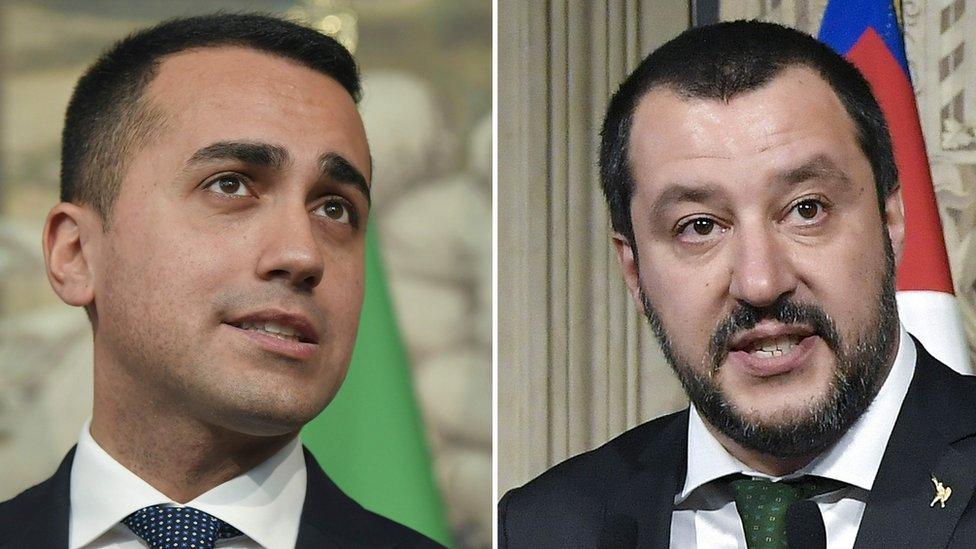
Five Star Movement's Luigi Di Maio (L) and League's Matteo Salvini held talks with Italy's president on Monday
However, he has strong ideas about how Italy should be run and is seen as close to Luigi Di Maio of Five Star.
He has called for hundreds of "useless laws" to be abolished and believes that the ideologies of the 20th Century are out of date.
Mr Conte was Five Star's preferred choice and was already the figure they wanted for another government role.
The parties needed to reach an agreement on their prime ministerial candidate with Mr Mattarella before seeking approval from parliament.
What are the coalition's key pledges?
On Friday, 11 weeks after an inconclusive election result, the populist parties released their anti-austerity coalition manifesto. Here are some of the key points:
Guaranteed income: Poor families will get a €780 (£682; $919) basic monthly income, provided recipients actively seek work
Mass deportations: An estimated 500,000 undocumented migrants in Italy must be deported "as a priority"
New tax rates: A "flat tax" will be introduced to reduce income tax rates to just two brackets, set at 15% and 20%, while families would receive a €3,000 annual tax deduction based on household income
Italy's debt: Revisions to the EU's Stability and Growth Pact, which sets a tough budget deficit limit of 3% of GDP, and a plan to reduce debt through "internal demand" instead of austerity
Pension reform: Setting the minimum monthly pension at €780, with a plan to abolish the current pension reform that raises the retirement age in phases
Relations with Russia: To work with the Kremlin on international issues such as the smuggling of migrants across the Mediterranean and the continuing influence of violent Islamists
- Published1 June 2018
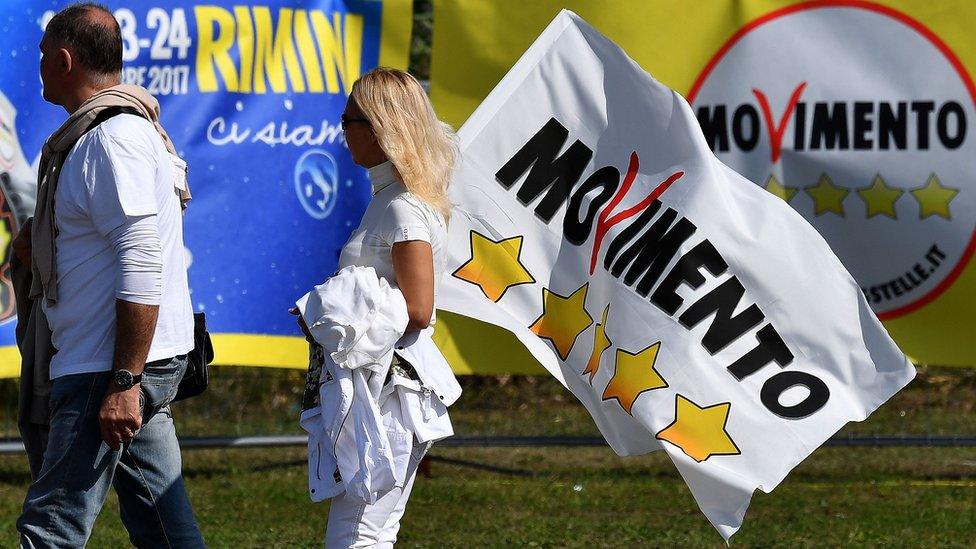
- Published6 March 2018
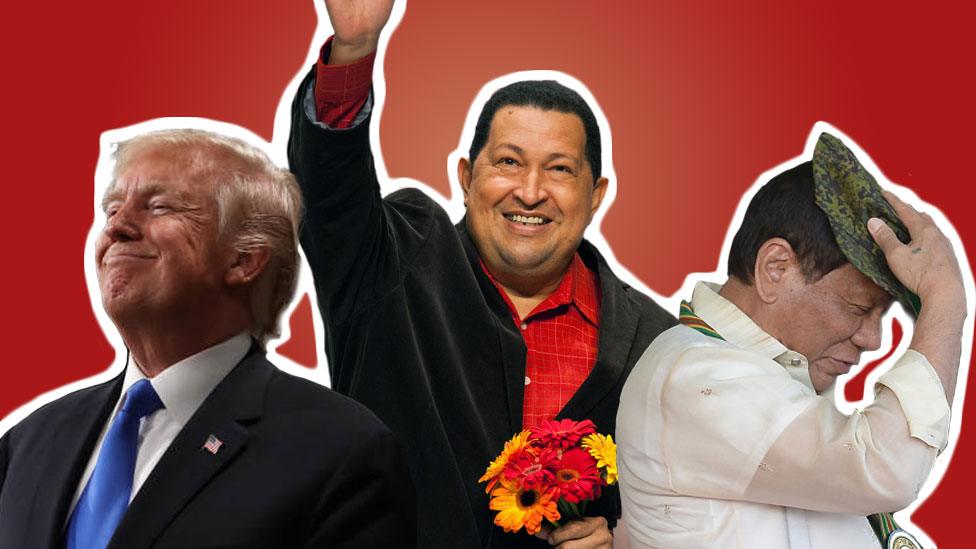
- Published2 March 2018
